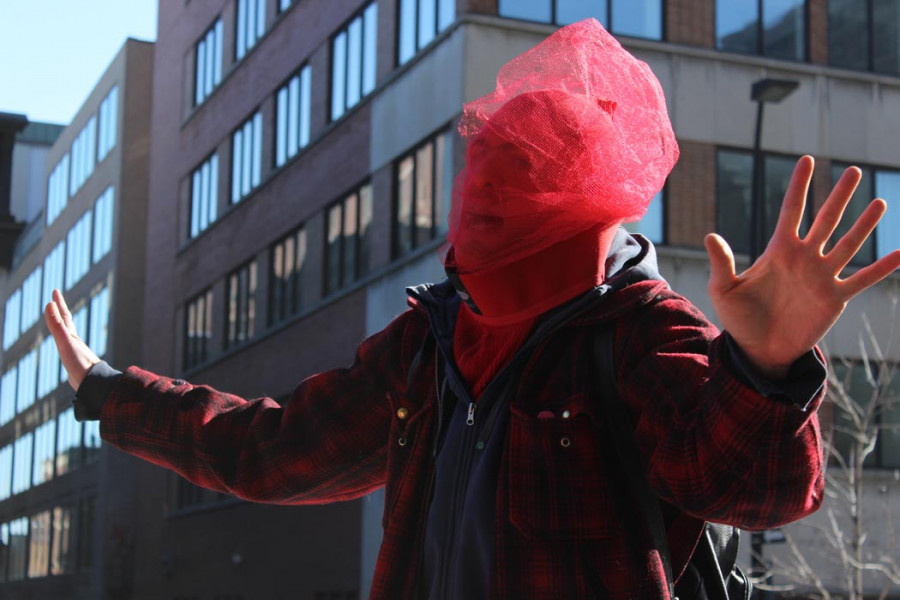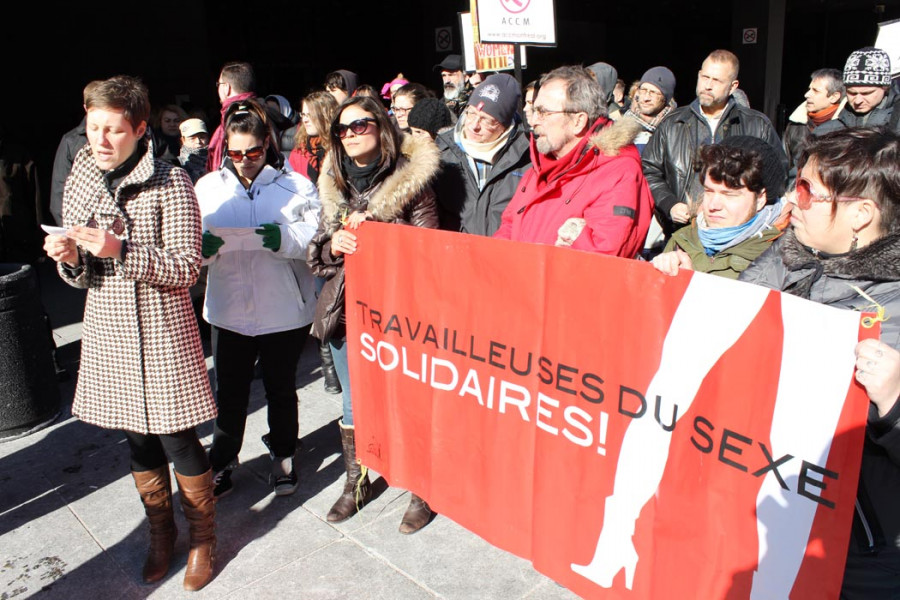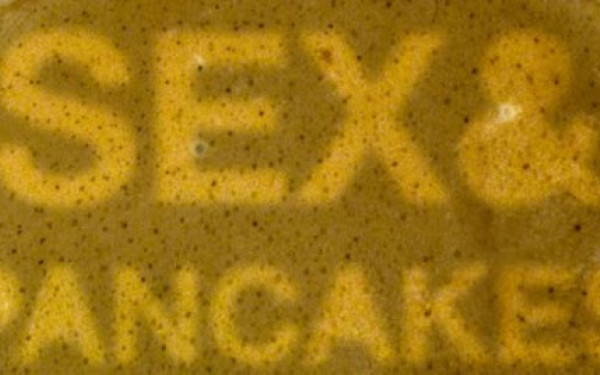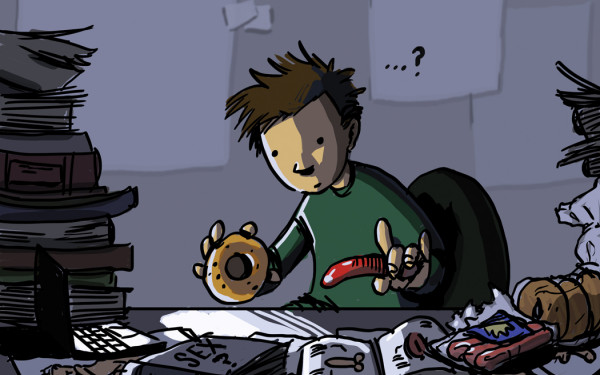Preventing Prevention
Protest Against Controversial Non-Disclosure HIV Law
A group of activists gathered outside the Montreal Superior Court Feb. 7 to protest the criminalization of non-disclosure of an HIV-positive status.
The following day, the Supreme Court of Canada heard two landmark cases on this issue in R v. Mabior and R v. DC.
These cases will decide whether it is a criminal offence to withhold an HIV-positive status if risk of transmission is low.
“We think that the criminalization of non-disclosure prevents prevention,” said Jordan Arseneault, editor of 2B Magazine and organizer with Radical Queer Semaine.
RQS, in conjunction with The Warning, Coalition des organismes communautaires québécois pour le sida, Stella Montreal, PolitiQ-queers soidaires, organized the demonstration.
Arseneault argued the controversial law is counter-productive in curbing the transmission of HIV.
He is not alone.
In a recent interview, Réjean Thomas—a leading researcher in the field of HIV/AIDS, and head doctor at Montreal’s Actuel Clinic—put a few of these issues into perspective.
“[In Quebec,] 20 to 30 per cent of HIV positive people do not know their status, which is a huge problem related to social stigma and criminalization,” said Thomas. “This means that the approximately 25 per cent of people who do not know they are HIV [positive] are responsible for 50 per cent of all new infections.”
Consequently, the leading health risk for gay men, for example, remains HIV.
“The problem is that there are not currently enough resources, social, psychological and financial, to prevent high-risk [HIV] negative men and youth from getting infected,” said Thomas.
Non-disclosure of your status can result in life-long jail sentences for charges ranging from aggravated assault, to sexual assault, manslaughter, or murder.
“If you threaten people with jail-time and with criminal records for not disclosing their HIV status, they’re not going to disclose their HIV status,” said Arseneault.
Advocates of ending the criminalization of non-disclosure argue that the law doesn’t consider scientific advancements in the field of HIV prevention and violates basic human rights.
“The legal system, which is outdated and based on fear instead of prevention, is still being allowed to prosecute people for non-disclosure,” said Arseneault.
Many groups including the Canadian HIV/AIDS Legal Network and UN AIDS are against the criminalization of non-disclosure of HIV status.
“These are not minority issues,” said Arseneault. “This goes to the core of how we as a society conceive of illness and conceive of what the proper use of our justice system is. The justice system will not, and cannot aide prevention efforts under this law.”





1web_600_375_90_s_c1.jpg)

